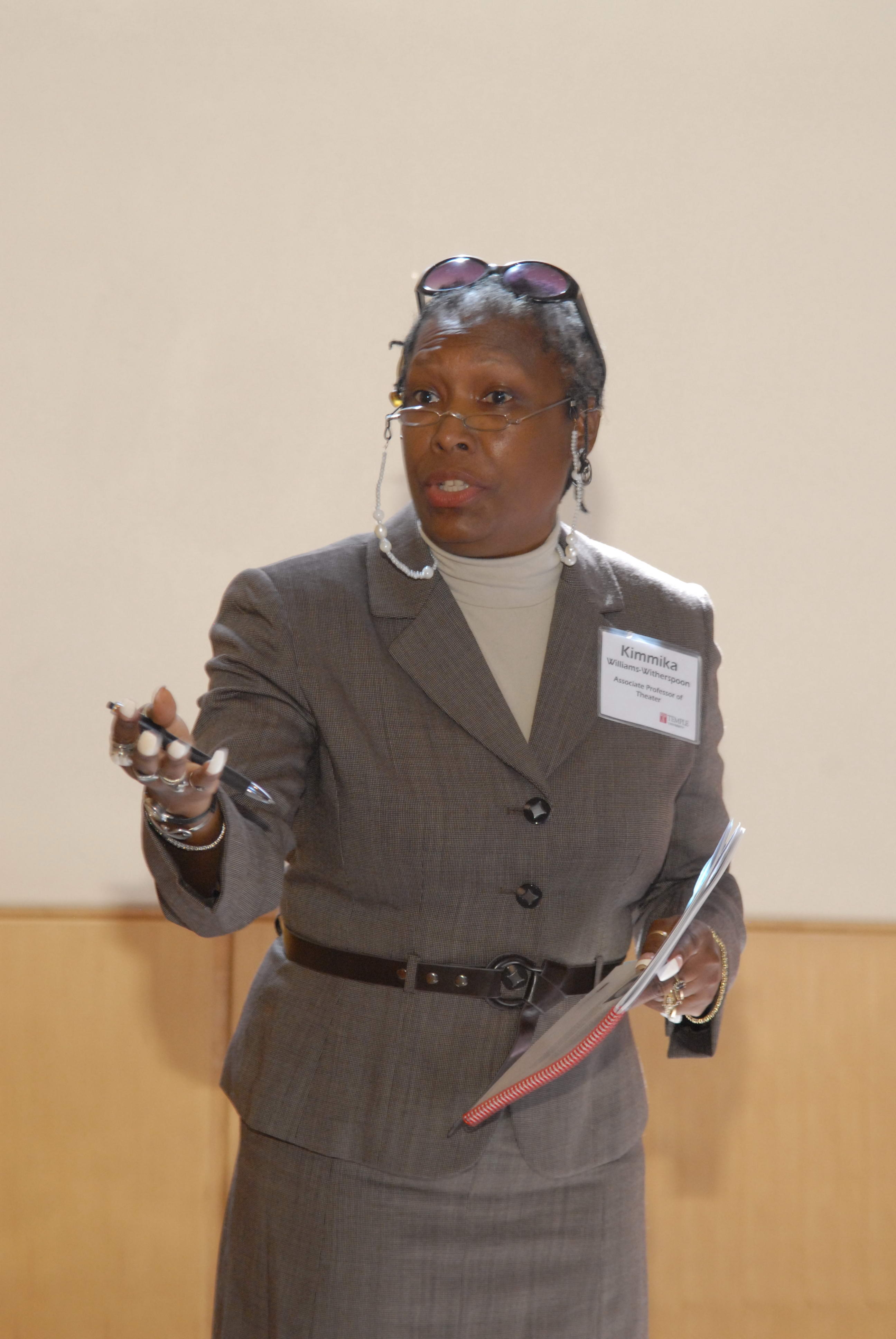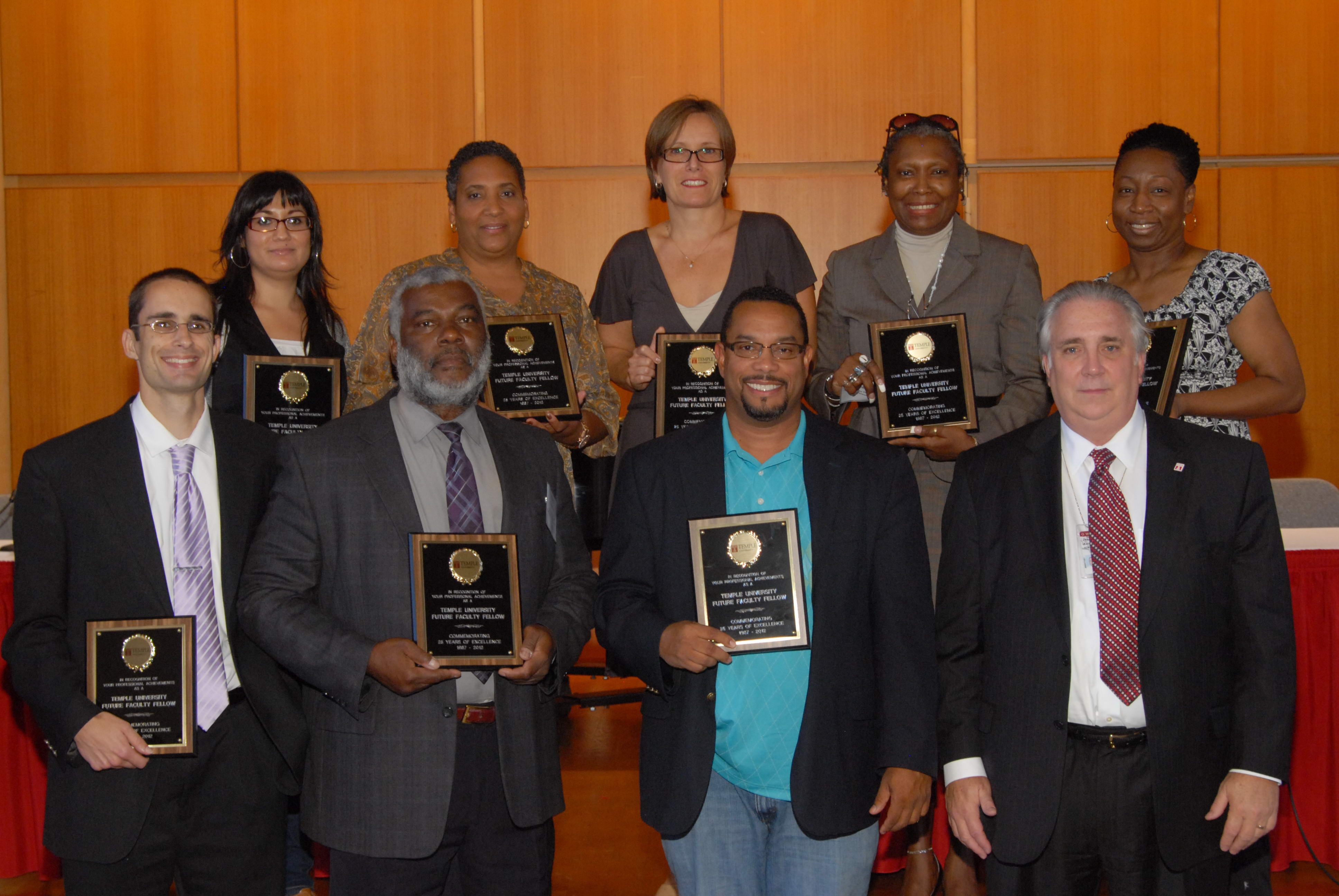Program aims to create opportunity for underrepresented postgraduates
After receiving his Bachelor of Science degree in anthropology from Portland State in 1989, Lee Baker arrived at Temple on a Greyhound bus with a passion for anthropology and the desire to become a professor — but that was about it, he admits.
“I did not know how to read critically or write persuasively,” said Baker, now associate vice provost for undergraduate education at Duke University. “Honestly, I did not really know what graduate school entailed.”
Baker was accepted into Temple’s Future Faculty Fellowship (FFF) program, which assists minority and underrepresented students in making the transition to graduate and postgraduate studies by offering financial support and access to a supportive network of colleagues and peers.
“The funding was important and allowed me to focus on my research, but it was the support, the retreats and the seminars that were the most beneficial in my professional growth and development,” said Baker.
On Saturday, Sept. 15, graduates of the FFF program gathered to on campus to celebrate the program’s anniversary as part of the fourth annual Graduate Fellows Research Symposium. The daylong event included discussion of the future of academia and research presentations by graduates of the program.
Kimmika Williams-Witherspoon led a discussion on the program itself. Now an associate professor of theater at Temple, she was working part-time as a park ranger while raising two small children and continuing to write plays and poetry when she was awarded a program fellowship in 1996.
Although her work was being accepted by her peers and premiering on local stages such as the Walnut Theater, Williams-Witherspoon wanted to take her career a step further. At the urging of a colleague, playwright Ed Shockley, Williams-Witherspoon applied for the fellowship program, and the rest is Temple history.
She became the third African American to receive the fellowship in theater and the first to be awarded back-to-back fellowships, which helped her complete her graduate degrees in theater and anthropology and her doctorate in anthropology.
“I know for a fact that if it wasn’t for the Future Faculty Fellowship program I would not be where I am today,” said Williams-Witherspoon. “The program gave me access to a network of scholars and the financial support to return to school full time. The experience was invaluable.”
Established in 1987, the FFF awards are made in the sciences, arts, humanities, social sciences and education and for the master of fine arts program. The program’s purpose is twofold: in addition to attracting and maintaining outstanding students, the program aims to diversify the American professoriate.
Eligible candidates include newly admitted graduate students from groups underrepresented in a given discipline who show exceptional leadership and/or have overcome significant obstacles in pursuing an academic career.
The program is necessary to the future of a diverse community of professors and academic leaders, said Keith Diaz, a postdoctoral research scientist at Columbia University Medical Center.
“For me the Future Faculty Fellowship was more than just, ‘Here’s a check, go make it happen,’” said Diaz. “It was the guidance and support of the wonderful faculty behind the program that were vital to my success as a graduate student. I know that I would not be where I am today without the program.”

